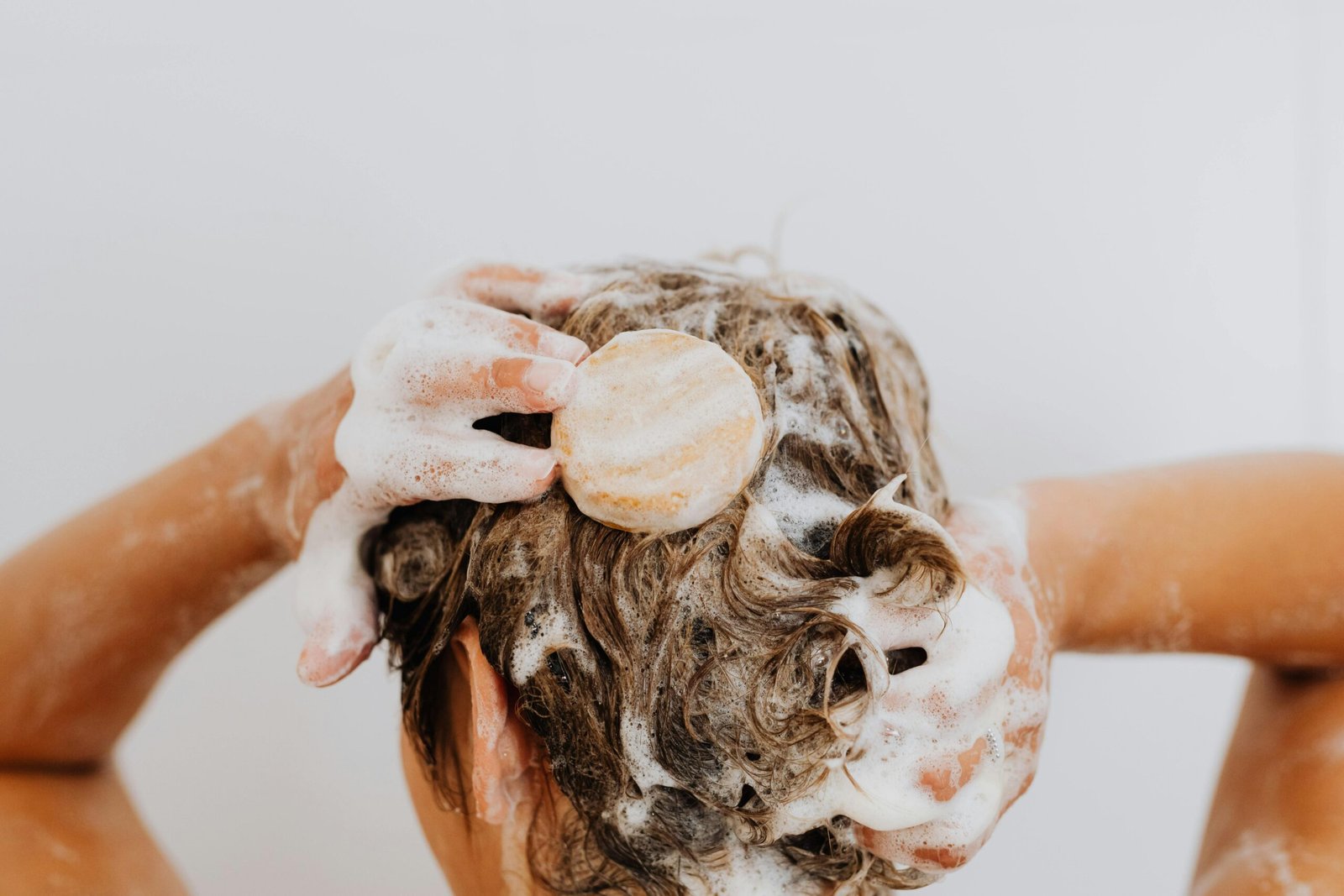Dealing with dandruff and an itchy scalp can be frustrating, especially when harsh chemical shampoos leave your skin feeling dry or irritated. Natural shampoos offer a gentler approach. Powered by botanical ingredients like tea tree oil, coconut oil, and African black soap, these shampoos fight dandruff-causing microbes while nourishing your scalp.
This guide explains how natural shampoos work, highlights key ingredients, includes a DIY recipe, offers expert tips for use, and recommends top natural shampoos you can try right away.
Why Choose Natural Shampoo for Dandruff Relief
Natural shampoos can help restore balance to the scalp without the harsh additives found in many conventional treatments. Here’s why they stand out:
- Antifungal and antibacterial: Botanical extracts like tea tree oil target the fungi and bacteria that trigger dandruff.
- Soothing and hydrating: Ingredients such as rose water and glycerine calm itchiness while keeping the scalp moisturized.
- Nutrient-rich: Natural oils infuse vitamins and fatty acids that support scalp health and hair growth.
Switching to a natural shampoo can reduce flakes, relieve itching, and create a healthier scalp environment over time.
Top Natural Shampoos Worth Trying
If you’re not into DIY, there are excellent natural anti-dandruff shampoos you can buy online. Each combines gentle botanical ingredients with proven dandruff-fighting power:
Infused with tea tree oil, jojoba oil, and rosemary, this shampoo gently removes buildup while calming irritation and reducing flakes. It’s refreshing without being harsh, making it great for frequent use.
This shampoo helps balance scalp pH, remove residue, and restore shine. The mix of
Designed to soothe itchy, sensitive scalps, this shampoo blends tea tree oil and plant-based moisturizers. It targets dryness, flaking, and irritation while leaving a clean, cooling feel after each wash.
This certified-organic option uses tea tree, chamomile, and aloe to cleanse gently while easing irritation. It’s a solid choice if you want clean ingredients without sulfates or synthetic fragrances.
This eco-friendly shampoo bar combines neem, oatmeal, and tea tree oil to combat flakes naturally. It’s travel-friendly, zero-waste, and gentle on even the most sensitive scalps.
These products make it easy to transition from harsh chemical shampoos to gentler, plant-powered formulas that support long-term scalp health.
Key Natural Ingredients to Look For
Whether you shop or go the DIY route, look for ingredients that cleanse gently and nourish deeply:
- African black soap – Exfoliates dead skin cells while offering antibacterial and antifungal benefits.
- Rosemary – Boosts blood circulation to the scalp, helping stimulate hair follicles.
- Rose water – Hydrates and balances the scalp’s pH level.
- Glycerine – Draws moisture into the skin, preventing dryness.
- Coconut oil – Nourishes and seals in hydration to prevent protein loss.
- Olive oil – Adds vitamins A and E to strengthen the scalp and soften hair.
- Tea tree oil – Provides powerful antifungal and antibacterial action to target flakes and irritation.
These ingredients work together to cleanse without stripping the scalp’s natural oils, helping prevent future flare-ups.
DIY Natural Shampoo: Step-by-Step Guide
Making your own natural shampoo lets you control ingredients and avoid harsh additives. Here’s a simple recipe to try:
- Prepare base
- Cut raw African black soap into small chunks.
- Add 1½ tablespoons of cloves and 1 tablespoon of dried rosemary.
- Infuse ingredients
- Place ingredients in a heat-safe container.
- Pour in hot water while stirring gently.
- Cover and let sit for 1 hour to extract the beneficial properties.
- Strain and store
- Strain through a cheesecloth to remove solids.
- Pour the liquid into an applicator bottle.
- Customize
- Add 1–2 teaspoons each of rose water, glycerine, coconut oil, olive oil, tea tree oil, and peppermint oil.
- Shake gently to combine.
How to use: Apply the shampoo to wet hair, massaging gently into the scalp with your fingertips or a scalp brush. Let sit for 2–3 minutes, then rinse thoroughly.
Expert Tips for Using Natural Dandruff Shampoo
Maximize the benefits of your natural shampoo with these helpful tips:
- Massage gently – Use circular motions to boost blood flow and help nutrients absorb.
- Shampoo regularly – Start with 2–3 times per week, then reduce to once weekly as symptoms improve.
- Let it sit – Leave the shampoo on for a few minutes before rinsing so ingredients can work.
- Avoid over-washing – Too much washing can strip natural oils and worsen dryness.
- Use a scalp brush – Helps exfoliate dead skin cells and distribute shampoo evenly.
Consistency matters—most people notice improvement within 2–3 weeks of regular use.
Final Takeaway
Natural shampoos offer a gentle, effective way to manage dandruff and soothe an itchy scalp. By using proven botanical ingredients—whether in a DIY recipe or store-bought formulas—you can restore balance to your scalp without harsh chemicals. This approach supports long-term scalp health, reduces flakes, and keeps your hair looking and feeling its best.
FAQs
Q: How can I tell if it’s dandruff or just dry scalp?
A: Dandruff causes oily, yellowish flakes and irritation, while dry scalp leads to small, white flakes without redness.
Q: What natural ingredients work best for dandruff?
A: Tea tree oil, coconut oil, and African black soap are top choices for their antifungal and soothing properties.
Q: How often should I use natural dandruff shampoo?
A: Use 2–3 times weekly at first, then reduce to once a week as symptoms improve.
Q: How long does it take to see results?
A: Many users notice reduced flakes and itching within 2–3 weeks, with full improvement after 4–6 weeks.
Q: What should I look for in a store-bought natural shampoo?
A: Choose products with antifungal ingredients like tea tree oil and avoid sulfates, parabens, and synthetic fragrances.






